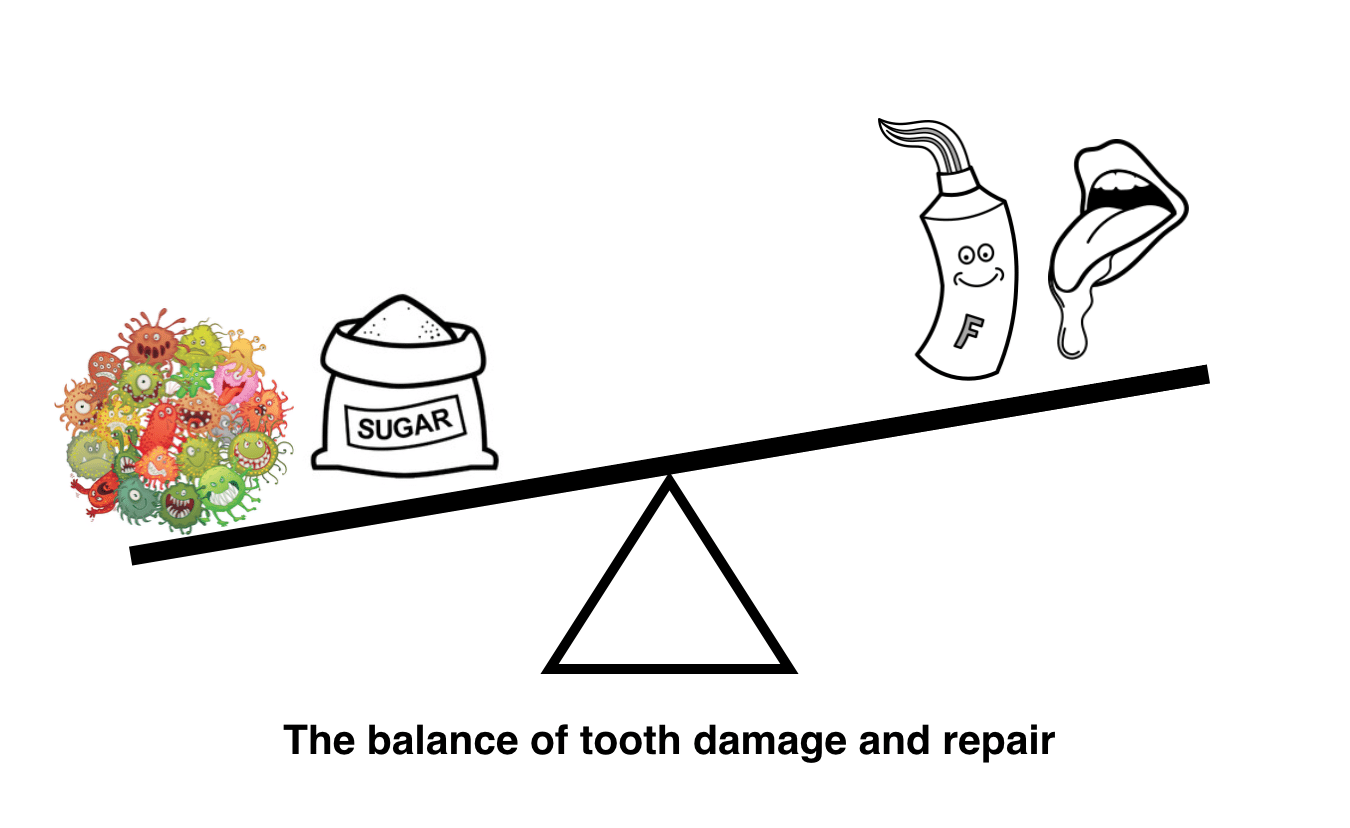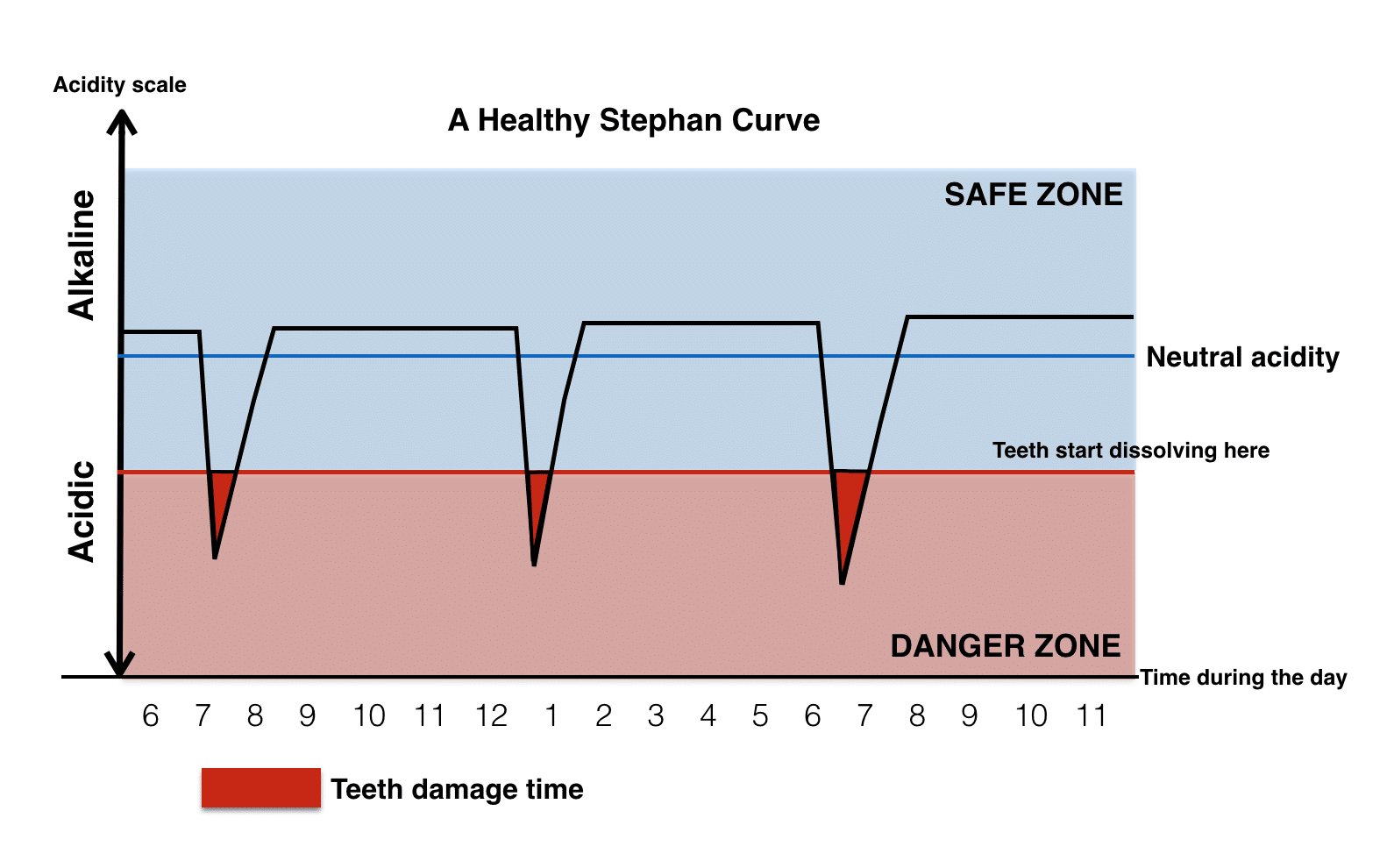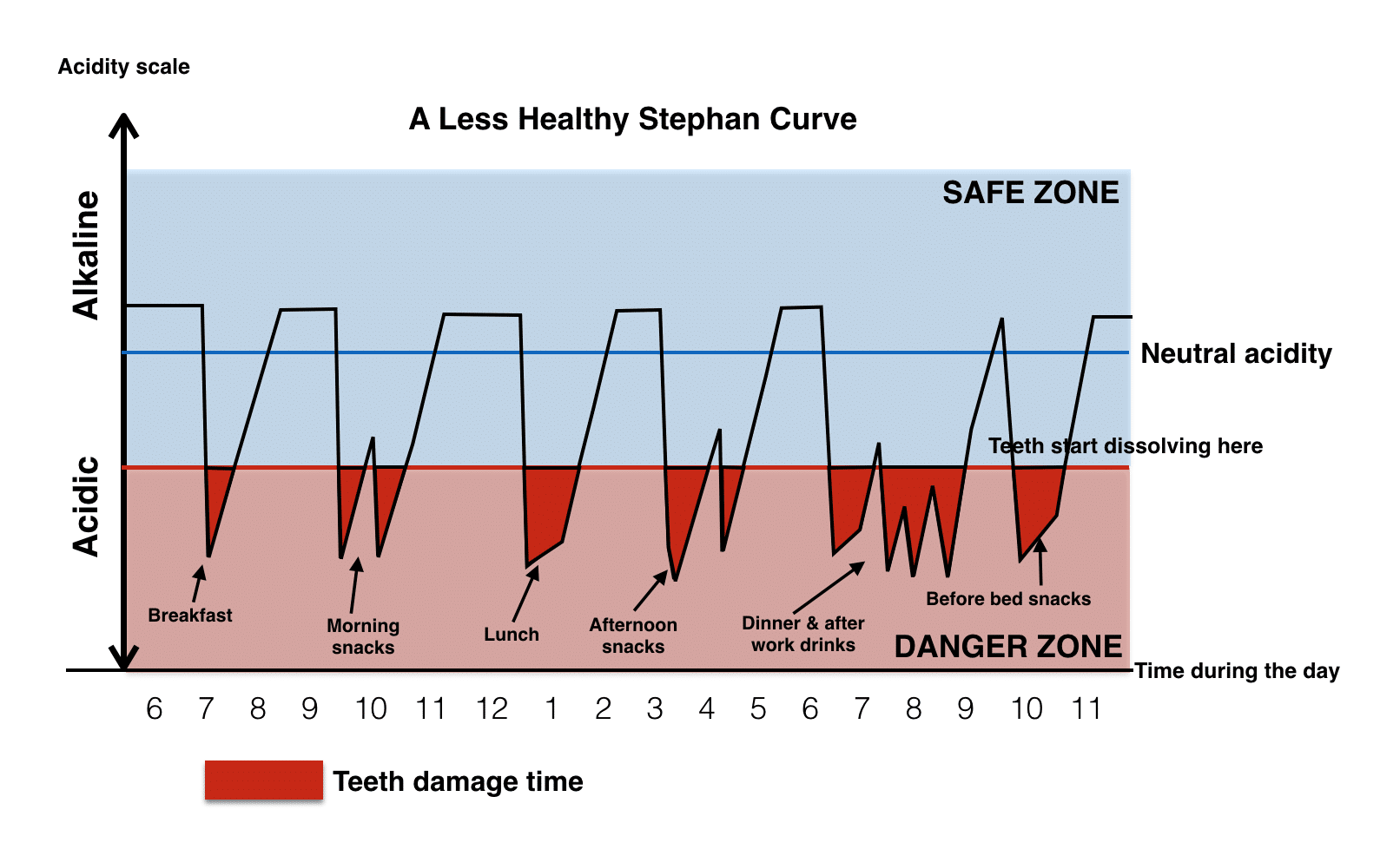“My partner had a lot of sweets but he has never got a hole in his life.” It seems unfair, isn’t it? Well, it’s either he’s not aware that he has holes in his teeth (See why here) or another explanation follows below. Read on…
In the last post, I mentioned the cause of dental decay. Here I would like to dig deeper into a bit more details of how bacteria and sugar damage teeth.
We all consume sugar for energy. We experienced the period of high alertness called “sugar high” after we had sweet drinks or snacks. Bacteria in our mouths also benefit from this sugar intake as well. They consume sugar and produce acid as a byproduct which “softens/dissolves” and damages our teeth. Simply said, whenever you consume sugar, your mouth becomes more acidic and teeth are being damaged.
In reality, we cannot go through our lives without having any sugar because where else would we get energy from? Also you may ask, why is it that some people have holes in their teeth and some don’t?
While bacteria and sugar damage your teeth, fluoride and saliva help to protect them.
The answer is in the saliva. You may notice that when you think of food or when you start chewing food, your mouth salivates a lot. Apart from lubricating your mouth and helping digest food before you swallow, saliva also washes away acid and repairs your teeth with minerals. It usually takes anywhere from 20 minutes to 60 minutes for the mouth to return to neutral acidity. As you can imagine, your mouth is constantly switching inbetween states of damage and repair as will be explained by the Stephan curve below.
If all you eat on any given day is food during breakfast, lunch and dinner, your Stephan curve may look like the one above. Your teeth are damaged for a very short period of time and then they would have plenty of time to repair. Your teeth are safe!! On the other hand, if we start introducing a few snacks between meals, your curve may look like the one below.
In this scenario, the balance is tipped in favour of bacteria damaging your teeth. The process will continue until holes develop in your teeth. When the damage reaches the nerve in the middle of the tooth, pain and toothache follow.
The golden message is: It’s all about FREQUENCY or HOW OFTEN you consume sugar. Two people may have two cans of soft drinks equally everyday. If the first person has them during meals while the second person sips the drinks throughout the morning and afternoon, we know from what we just learnt that the second set of teeth is going to be much worse off.
This is also confirmed in the Vipeholm study mentioned in the previous blog post. The test subjects that consumed chocolate, toffee or caramel between meals had significant increase in the number of incidents of dental decay. The “sucrose group” that had sweets and drinks at meal times only showed little increase in decay.
Don’t despair. Remember it’s a process. We don’t get holes in our teeth overnight. That means we have time to fix this problem. In the next blog, we’ll look at different things we can do to combat dental decay.
To your healthy smile.
Dr. Supa
Supa Dental, Melton.





